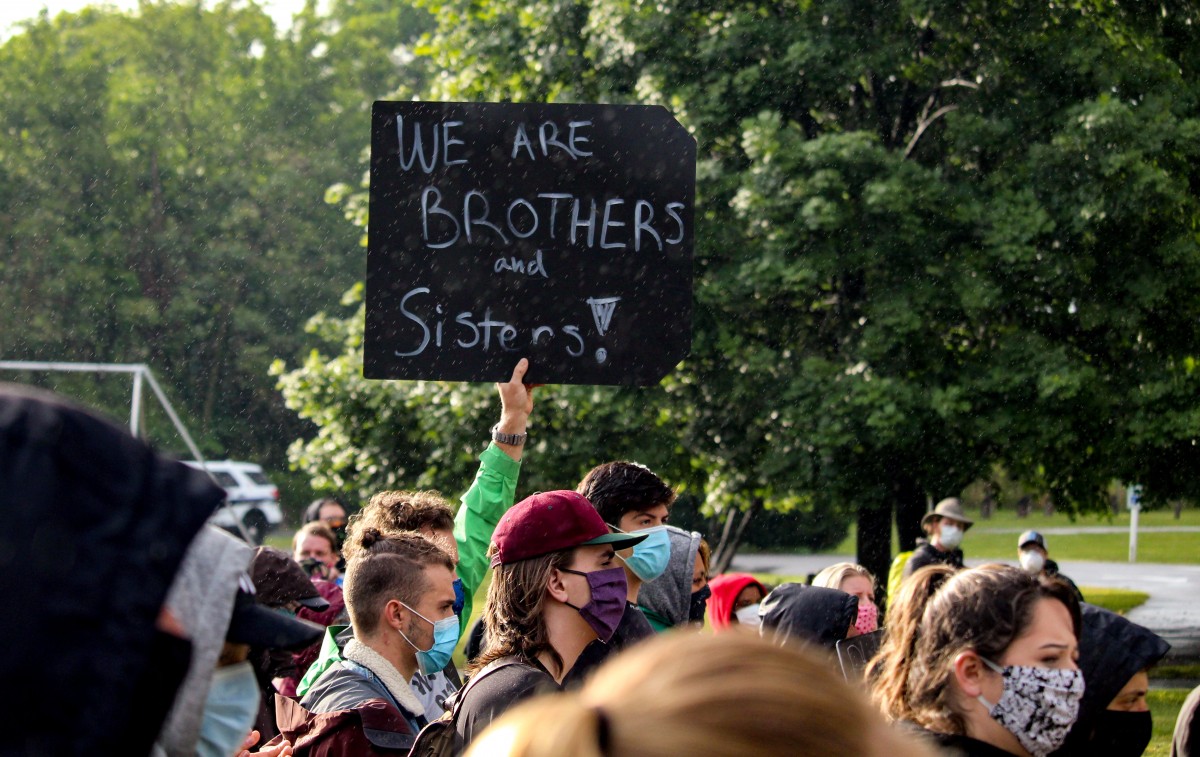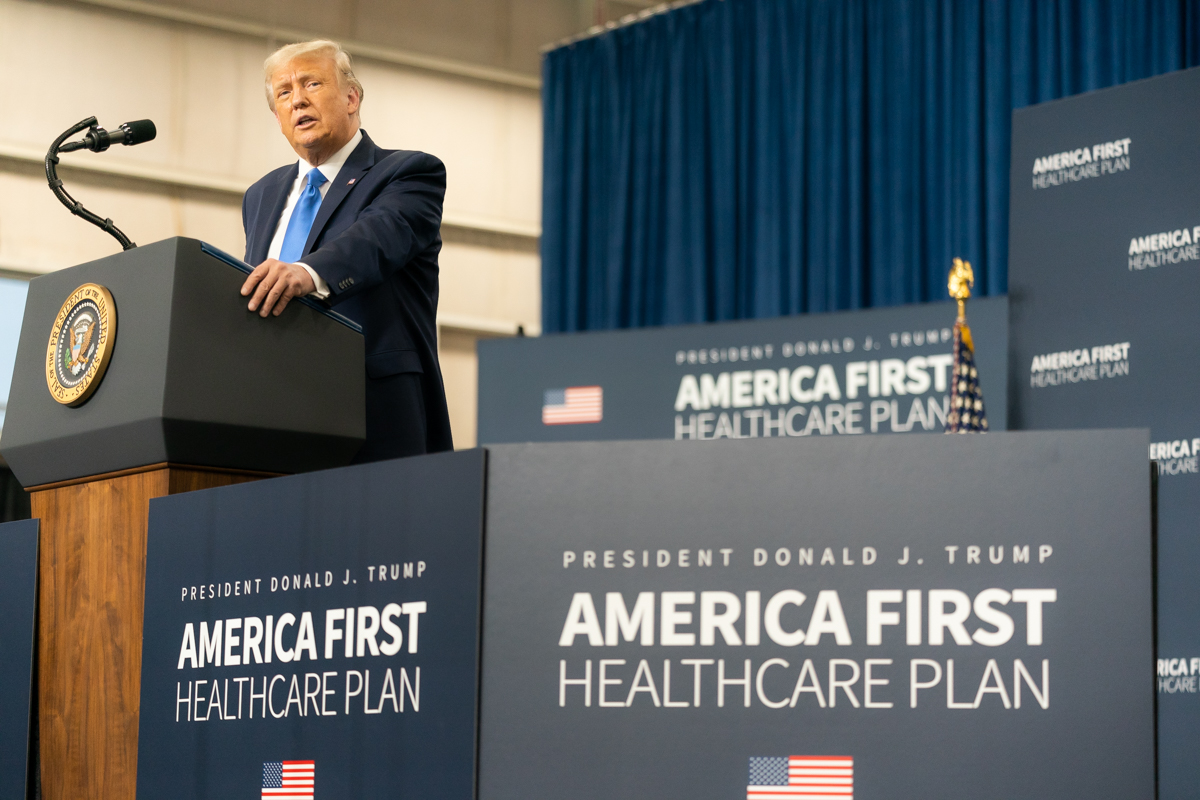“Seven years, 103 days, 15 hours, 40 minutes, and 7 seconds,” read a clock in New York City mid-afternoon on September 19th. It was a countdown until the estimated date when the effects of climate change on the planet become irreversible: the end of 2027.
In 2027, I’ll be 24 years old and hopefully in graduate school. At that time in my future, I should be focusing on my studies, my plans and making a life for myself, but instead, it appears that I’ll be watching our chances at a livable future tick away like numbers on a clock.
In order to prevent a climate disaster (and with only seven years to do it), we must be willing to suffer temporary economic losses in the best interest of the public and alter the ways we live, eat and travel to promote a safer society.
If any of those objectives sound familiar, it’s because they’re just as necessary in the current battle against COVID-19 – and if the COVID-19 crisis is anything to go by, we’re in trouble.
As a young person who’s been deeply concerned about my future in the changing climate for years, it’s staggering to watch the United States unravel over an issue with a necessary response so similar to that of climate change. The country is in turmoil over simple sacrifices, the likes of which will have to become the “new normal” in the fight for a sustainable future, and our collective unwillingness to make these compromises warrants concern.
COVID-19 has been referred to by President Trump as an “invisible enemy,” a category that climate change can just as easily fit into. This shared inconceivability makes it difficult for the public to truly grasp the danger of such an enemy, which accounts for some of the recent uproar regarding public safety measures. If people aren’t seeing their friends and family fall ill, they begin to feel invincible, and, in turn, believe that measures such as mask mandates are unnecessary or even un-American. The mentality is similar when it comes to climate change. If you’re enjoying the warm, crisp beauty of a fall afternoon in Appalachia and not paying attention to the wildfires ravaging the West Coast, it’s easy to pretend it simply doesn’t impact you.
In the cases of both global epidemics, the power of misinformation, rooted in fear of lost liberties, is overwhelming. In both instances, economic anxiety is a driving force behind dissent for public health: Why aren’t you enacting stay-at-home orders? It will hurt the economy. Why are you against the Green New Deal? It will hurt the economy. These existential threats are being ignored for the sake of perceived economic gain, and it’s nothing new.
America has, since before its conception, when it adopted the institution of slavery, prioritized the country’s economic well-being over all else. This has materialized today in Appalachia, and nationwide, as we’re witnessing protests against mask mandates and our own communities reopening prematurely, suffering the public health consequences. The continued spread of COVID-19 will leave no healthy workers to participate in that reopened economy, and the unwillingness to mitigate the effects of climate change will leave no planet and, therefore, no economy at all.
I would like to believe that if it became scientifically apparent that a threat to public health was coming, we would work together to fight it. The COVID-19 crisis, however, has proven that to be wishful thinking, given how many people are willing to rally against protecting public health if they don’t believe it is immediately life-threatening. Just like with the spread of COVID-19, we’re missing the message of urgency. Scientists agree that climate change is both existent and dangerous, yet the public chooses not to act because the danger is not on their doorstep.
COVID-19 and climate change share a painful reality: Once the problem is evident, it’s too late for it to be solved. Once COVID-19 community spread is discovered, a mask mandate or stay-at-home order will take weeks to have an effect. Once the changing climate is problematic enough to garner attention, any actions to counter it will likely come too late, and I fear it will reach the same boiling point COVID-19 has. After allowing it to exist for so long through inaction, we may be unable to stop it.
Unless our generation’s activists and future legislators force its end, this approach isn’t changing – COVID-19 has made this abundantly clear. We had one chance to prevent catastrophe stemming from COVID-19, and we failed. The resulting loss of life – 200,000 Americans and counting – is greater than any of us could have imagined a year ago, but the loss we will suffer from inaction on climate change is greater still.
This crisis has taught us that modern America is resistant to change, especially the type of long-term, inconvenient change that will be necessary to fight climate change. Of course, Americans are not the only part of the equation, as this is an innately global fight, but we have the opportunity to choose: Will we lead efforts to save our planet, or will we hinder them?
As my generation grows up attempting to imagine a future in this world where those in power refuse to listen to calls to ensure a livable planet, we’re charged with reaching other Appalachians and convincing them that we are faced with a clear danger. We need their help. We must rally together, whether it’s promoting sustainable living habits or simply raising awareness on social media, to work across political lines, learn from each other and organize to demand attention from our legislators.
Through the COVID-19 crisis, we’ve witnessed a disappointing truth about climate justice and any other issue that requires collective sacrifice. If attitudes in America remain the same, we don’t stand a chance. And our future is on the line.
Brook Smith is a 17-year-old high school senior living in Floyd County, Virginia. She enjoys writing about and engaging in politics and wants to attend college with a major in Political Science. She is also a member of the Appalachian Youth Climate Coalition, an organization committed to organizing for climate justice in rural Appalachia.



